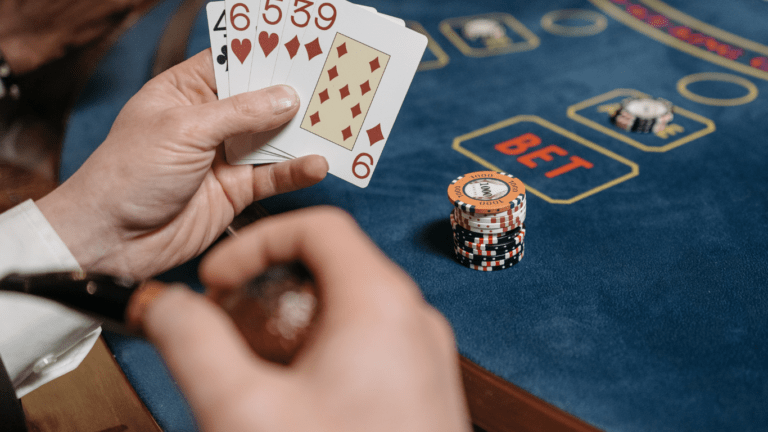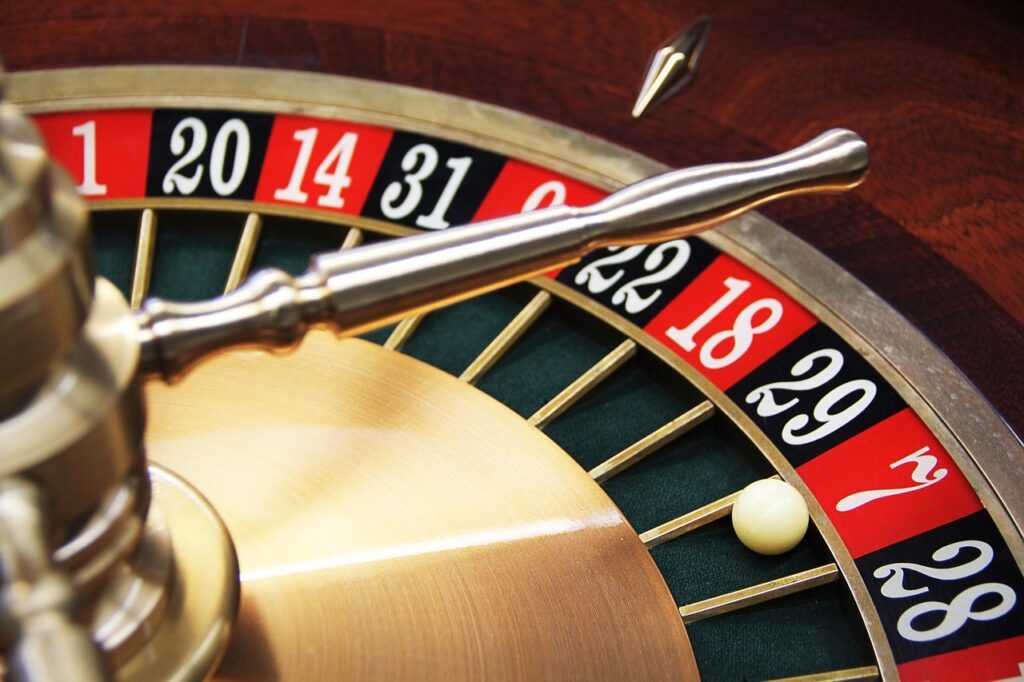As someone deeply involved in the world of gambling, I understand the allure and excitement that comes with placing bets and chasing that elusive win. However, beneath the surface of this thrilling pastime lies a darker reality that many fail to recognize the potential for addiction.
In this guide, I’ll shed light on the crucial signs of gambling addiction that both players and casinos should be vigilant about. From subtle behavioral changes to financial distress, the warning signals of a gambling problem can manifest in various ways.
It’s essential for players to understand these signs to protect themselves from falling into the trap of addiction. Likewise, casinos play a pivotal role in fostering a responsible gaming environment by recognizing these indicators and offering support to those in need. Stay tuned as I delve deeper into this critical issue affecting the gambling industry.
Understanding Gambling Addiction
Gambling addiction, a serious condition with harmful effects on individuals and their families, presents significant challenges for both players and casinos. Recognizing the signs of addiction, such as secrecy, mood swings, and neglect of responsibilities, is key to early intervention and support.
Financial distress is a common consequence of gambling addiction, and casinos play a vital role in identifying and assisting individuals facing these challenges. By prioritizing responsible gaming practices, the industry can foster a supportive environment that helps address gambling addiction effectively.
Signs of Gambling Addiction in Players
As someone deeply familiar with the gambling industry, I recognize the importance of identifying the signs of gambling addiction in players. Various indicators can help both players and casinos intervene early and provide support where needed.
Behavioral Indicators
When it comes to recognizing gambling addiction in players, behavioral changes play a crucial role. Some common behavioral indicators include:
- increased secrecy around gambling activities
- a noticeable decline in performance at work or school
- frequent unexplained absences or excuses related to gambling sessions
Monitoring these behavioral changes can help identify potential issues before they escalate.
Emotional Indicators
Emotional indicators can also shed light on possible gambling addiction. Players exhibiting the following emotional signs may be struggling with addiction:
- sudden mood swings or irritability
- increased anxiety or depression, especially after gambling sessions
- a preoccupation with gambling that affects personal relationships
Recognizing and addressing these emotional indicators promptly is essential in supporting individuals dealing with gambling addiction.
Financial Indicators
Financial distress is a significant consequence of gambling addiction. Players facing financial struggles may resort to deceitful behaviors to fund their gambling habits. Some financial indicators to watch out for include:
- borrowing money frequently or from multiple sources
- selling personal belongings to finance gambling activities
- experiencing significant debt or unpaid bills due to gambling losses
By being vigilant of these financial indicators, both players and casinos can take proactive steps to assist individuals in overcoming gambling addiction.
Impact of Gambling Addiction on Players
Exploring the ramifications of gambling addiction sheds light on the distress it inflicts on players. Addiction disrupts lives and relationships, engendering a cascade of adverse consequences. I’ve delved into the effects below to underscore the urgency of addressing this pervasive issue.
Financial Strain:
Gambling addiction’s foremost repercussion lies in its severe financial toll on players. The insidious nature of addiction often leads individuals down a path of financial ruin. Players may find themselves embroiled in mounting debt, resorting to desperate measures to finance their habit.
This can culminate in spiraling financial distress, affecting not only the individual but also their loved ones.
Emotional Turmoil:
The emotional upheaval caused by gambling addiction is profound. Players grappling with addiction often experience a rollercoaster of emotions, swinging between elation and despair. Anxiety becomes a constant companion, overshadowing daily life and straining relationships.
The compulsion to gamble takes precedence, eclipsing once-held priorities and leading to emotional isolation.
Psychological Impact:
Beyond the tangible repercussions, gambling addiction exerts a significant psychological toll on players. The relentless cycle of highs and lows perpetuates feelings of shame, guilt, and self-loathing. Players may resort to deceitful behavior to conceal their addiction, further exacerbating their psychological distress.
The erosion of self-esteem and loss of control intensify as the addiction tightens its grip.
Social Isolation:
One of the poignant effects of gambling addiction is the erosion of social connections. As players succumb to their addiction, they may withdraw from family and friends, preferring the solitude of gambling establishments. Isolation deepens as relationships fray under the weight of addiction, leaving players increasingly isolated and vulnerable.
Deterioration of Well-Being:
The all-encompassing nature of gambling addiction not only impacts players’ financial and emotional well-being but also their overall health. Neglect of physical and mental health becomes commonplace as the addiction consumes their focus. Sleep disturbances, poor nutrition, and neglect of self-care routines compound the toll on players’ well-being, further exacerbating the vicious cycle of addiction.
By comprehensively understanding the multifaceted impact of gambling addiction on players, we can underscore the imperative of early intervention and support mechanisms. Recognizing the signs of addiction is the first step toward providing assistance and fostering a culture of responsible gaming within the gambling industry.
Recognizing Gambling Addiction in the Casino Environment
In the casino environment, it’s crucial to be vigilant for signs of gambling addiction to ensure a safe and responsible gaming atmosphere for all patrons. As a seasoned observer of the gambling industry, I emphasize the significance of early detection and intervention to address potential addiction issues promptly.
- Observing Behavioral Changes: Players who exhibit erratic behavior, such as secrecy about their gambling activities, sudden declines in performance at work or school, or unexplained and frequent absences, may be showing signs of gambling addiction. It’s essential for casinos to monitor these behavioral shifts and offer support to individuals in need.
- Noticing Emotional Distress: Emotional indicators of gambling addiction include mood swings, heightened anxiety levels, and a strong fixation on gambling that affects personal relationships. Casinos should be alert to these emotional cues in players and provide resources for mental health support and counseling.
- Identifying Financial Warning Signs: Financial distress is a common consequence of gambling addiction, with individuals often resorting to borrowing money frequently, selling off personal assets, or accumulating substantial debt to sustain their gambling habit. Casinos play a vital role in recognizing these financial red flags and guiding players towards financial management assistance.
By closely monitoring players for these behavioral, emotional, and financial indicators of gambling addiction, casinos can play a proactive role in supporting individuals grappling with this issue. It’s imperative for the casino environment to be a place of entertainment and recreation, free from the detrimental impact of gambling addiction.
Support and Resources for Individuals with Gambling Addiction
As a seasoned expert in the gambling industry, I understand the essential role that support and resources play in aiding individuals grappling with gambling addiction. Recognizing the signs of addiction is just the initial step; providing access to the right assistance is crucial for recovery and harm reduction.
When it comes to addressing gambling addiction, players and casinos must collaborate to establish a network of support services. Here are some key resources and avenues of assistance available:
1. Helplines and Hotlines:
- National Problem Gambling Helpline: A toll-free, confidential helpline providing support and referrals to local resources for individuals facing gambling-related concerns.
- Casino Support Hotlines: Casinos can offer dedicated hotlines for players seeking assistance with gambling addiction or in need of guidance on responsible gaming practices.
2. Counseling and Therapy:
- Individual Counseling: Professional therapists specializing in gambling addiction can offer personalized treatment plans to address the underlying causes of compulsive gambling behavior.
- Support Groups: Joining support groups such as Gamblers Anonymous provides individuals with a platform to share experiences, seek advice, and receive peer support in a non-judgmental setting.
3. Financial Management Assistance:
- Debt Counseling Services: Financial experts can assist individuals in managing debts accrued due to gambling, providing strategies for repayment and financial stability.
- Budgeting Workshops: Casinos can organize workshops on financial planning and budget management to help players regain control over their finances.
4. Self-Exclusion Programs:
- Self-Exclusion Registers: Players can voluntarily enroll in self-exclusion programs at casinos, restricting their access to gambling facilities for a specified period to prevent further harm.
- Online Self-Exclusion Tools: Casinos offering online gaming platforms can provide self-exclusion tools for players to block their accounts and limit online gambling activities.
- Psychiatric Services: Access to psychiatric evaluations and treatments can help individuals address co-occurring mental health disorders contributing to gambling addiction.
- Crisis Intervention Teams: Casinos can have trained mental health professionals available to respond to emergencies and provide immediate support to individuals in distress.
By leveraging these support mechanisms and resources, players and casinos can collaborate effectively in combating gambling addiction and fostering a culture of responsible gaming. I advocate for the proactive implementation of these services to create a safe and supportive environment for individuals struggling with addiction within the gambling industry.














































































































































































































































































































































































































































































































































































































































































































































































































































































































































































































































































































































































































































































































































































































































































































































































































































































































































































































































































































































































































































































 Diane Lesperancertics – Responsible Gambling & Compliance Writer
Diane Lesperancertics is dedicated to covering responsible gambling practices, legal frameworks, and compliance issues in the industry. With extensive experience in gaming regulation and consumer protection, she provides well-researched content on ethical gambling practices, self-exclusion programs, and government policies. Diane is committed to promoting transparency within the industry, ensuring players have access to the tools and knowledge they need to gamble responsibly. Her work serves as a bridge between casino operators, regulators, and the gambling community.
Diane Lesperancertics – Responsible Gambling & Compliance Writer
Diane Lesperancertics is dedicated to covering responsible gambling practices, legal frameworks, and compliance issues in the industry. With extensive experience in gaming regulation and consumer protection, she provides well-researched content on ethical gambling practices, self-exclusion programs, and government policies. Diane is committed to promoting transparency within the industry, ensuring players have access to the tools and knowledge they need to gamble responsibly. Her work serves as a bridge between casino operators, regulators, and the gambling community.
